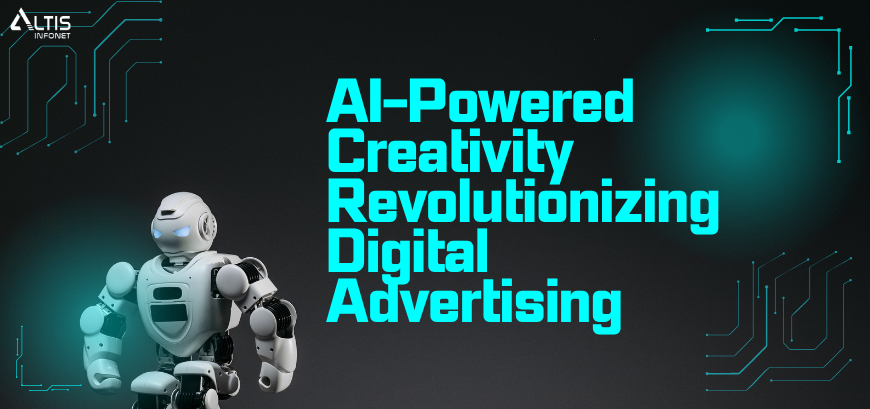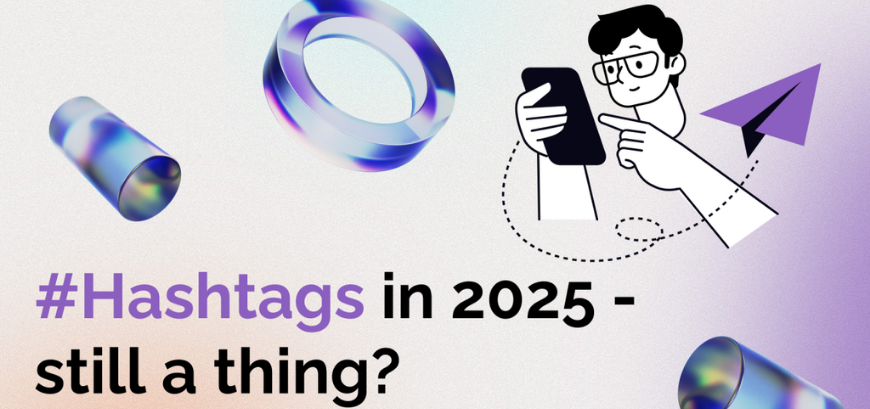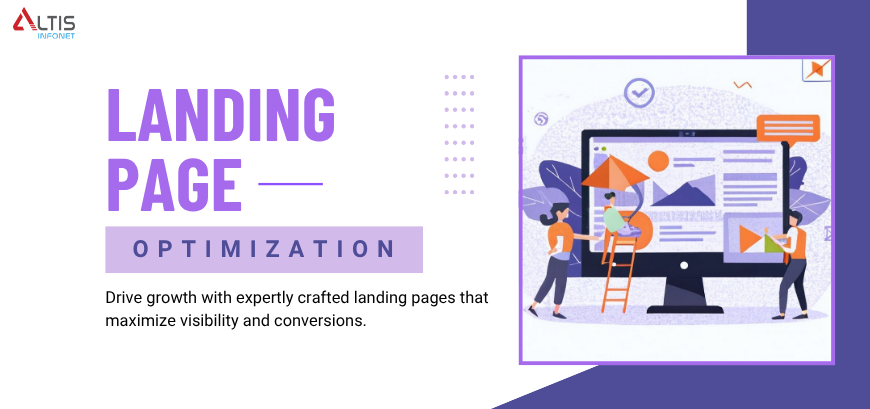Thriving in digital marketing demands innovation and smart use of cutting-edge tech, staying ahead of the competition. Artificial Intelligence and machine learning (ML) have emerged as strong tools that may alter your digital marketing strategies. Dive into advanced AI and ML strategies for optimizing your marketing operations in this in-depth blog.
Table of Contents
Understanding AI and ML:
Artificial Intelligence (AI):
AI is a vast subject of computer science that tries to construct intelligent machines. This covers tasks that require human intelligence, such as problem solving, thinking, learning, and decision-making.
There are two categories of AI:
- Narrow AI (or Weak AI): This AI is intended to do a specific task, such as voice recognition or image classification. It excels in its specific sector but is lacking in overall intelligence.
- General AI (or Strong AI): General AI, which is still primarily theoretical, would be capable of understanding, learning, and doing every intellectual work that a person can. It would have cognitive capacities similar to humans.
Machine Learning (ML):
ML, a subset of AI, focuses on teaching computers to learn from data through algorithms and models. ML systems use statistical techniques to improve their performance on a specific task as they encounter more data, rather than explicitly crafting rules.
There are various sorts of ML.
- Supervised Learning: Models are trained on labeled data in supervised learning to make predictions based on prior information. It is employed in tasks including as classification and regression.
- Unsupervised Learning: Clustering and reduction in dimensionality are involved in unsupervised learning. It aids in the discovery of hidden patterns or groupings within data.
- Reinforcement Learning: This type of ML revolves around an agent learning to make sequences of decisions to maximize a reward. It’s commonly used in gaming and autonomous systems.
Applications in Digital Marketing:
Artificial Intelligence and Machine Learning drive digital marketing with customer segmentation, predictive analytics, chatbots, SEO, content generation, and more for optimal results. These technologies improve productivity, provide deeper insights, and provide consumers with highly tailored experiences, making them vital tools for modern marketers.
How AI and ML Enhance Digital Marketing Campaigns
AI and ML enhance digital marketing campaigns in several ways:
- Personalization: Artificial Intelligence and machine learning analyze user data to produce highly tailored content and recommendations, increasing client engagement and conversion rates.
- Efficient Customer Segmentation: These technologies offer exact audience segmentation, allowing marketers to more successfully target certain demographics, behaviors, and preferences.
- Predictive Analytics: Artificial Intelligence and machine learning provide important insights into future trends and customer behavior, allowing marketers to make data-driven decisions and optimize campaigns.
- Cost Efficiency: Artificial Intelligence-driven programmatic ads cut costs by targeting the right audience, reducing wasted ad spend.
- Real-time Insights: AI-powered reporting solutions provide real-time data analysis, allowing marketers to instantly adapt campaigns and capitalize on emerging opportunities.
- Content Generation: Artificial Intelligence can create high-quality content while saving time and money and ensuring consistency.
- SEO Optimization: AI detects keyword opportunities, monitors changes to search engine algorithms, and enhances website ranks.
- Customer Support: Chatbots and virtual assistants provide customer care 24 hours a day, seven days a week, enhancing user experiences and response times.
- Email Marketing Efficiency: Artificial Intelligence improves email campaigns by segmenting lists, tailoring content, and determining the optimum times to deliver.
- Social Media Management: Artificial intelligence automates posting schedules, analyzes trends, and responds to user interactions, assuring a robust social media presence.
- Data Analysis: AI and machine learning extract important insights from data, resulting in better-informed decision-making.
- A/B Testing: These technologies use A/B testing to determine the most successful marketing aspects, which improves campaign performance.
Pros of AI and ML in Digital Marketing:
- Enhanced Personalization: Artificial Intelligence and machine learning analyze user data for personalized content and recommendations, boosting engagement and conversions.
- Efficient Customer Segmentation: These technologies offer exact audience segmentation, allowing marketers to more effectively target specific demographics and behaviors.
- Predictive Analytics: Artificial Intelligence and machine learning can help marketers make data-driven decisions and enhance campaigns by providing significant insights into future trends and customer behavior.
- Cost Efficiency: AI-driven programmatic ads cut costs by targeting the right audience, reducing ad waste.
- Real-time Insights: AI-powered reporting solutions provide real-time data analysis, allowing marketers to instantly adapt campaigns and react on emerging opportunities.
- Content Generation: AI can generate high-quality material while saving time and money and ensuring content uniformity.
- SEO Optimization: Artificial Intelligence detects keyword opportunities, monitors changes to search engine algorithms, and enhances website ranks.
- Customer Support: Chatbots and virtual assistants provide customer care 24 hours a day, seven days a week, enhancing user experiences and response times.
- Email Marketing Efficiency: AI improves email campaigns by segmenting lists, tailoring content, and determining the optimum times to deliver.
- Social Media Management: Artificial intelligence automates posting schedules, analyzes trends, and responds to user interactions, assuring that you have an effective social media presence.
- Data Analysis: Artificial Intelligence and machine learning extract important insights from data, resulting in better-informed decision-making.
- A/B Testing: These technologies use A/B testing to determine the most successful marketing aspects, which improves campaign performance.
Cons of AI and ML in Digital Marketing:
- Complexity: AI and ML technology implementation can be difficult, requiring significant technical skills and resources.
- Cost: Developing and maintaining AI and ML systems can be costly, which may be too expensive for small firms.
- Data Privacy: The application of Artificial Intelligence and machine learning in marketing creates worries about data privacy and security, which may result in regulatory problems.
- Potential for Bias: Artificial Intelligence algorithms may perpetuate data biases, resulting in biased marketing campaign targeting and decision-making.
- Lack of Human Touch: While chatbots and AI-powered customer service might be helpful, they may lack the human touch and personalization that some customers want.
- Constant Learning: AI and ML models must be trained and adjusted on a regular basis to be effective, which can be time-consuming.
- Overreliance: Dependence excessively on AI and ML may result in a loss of human creativity and intuition in marketing tactics.
Conclusion
AI and machine learning are reshaping digital marketing by enabling precision, personalization, and data-driven decision-making. It is critical to embrace these technologies strategically in order to stay ahead in this competitive landscape. Elevate your marketing success by integrating AI and ML into your digital initiatives. The future of digital marketing is here: smart, dynamic, and teeming with opportunities for the savvy.
Seeking an Outcome-Oriented Digital Marketing Firm?
Altis Infonet Pvt Ltd is a Web Development and Digital Marketing company with a focus on client servicing through knowledge-based solutions. Our team of experts will help make your digital dreams come true!





